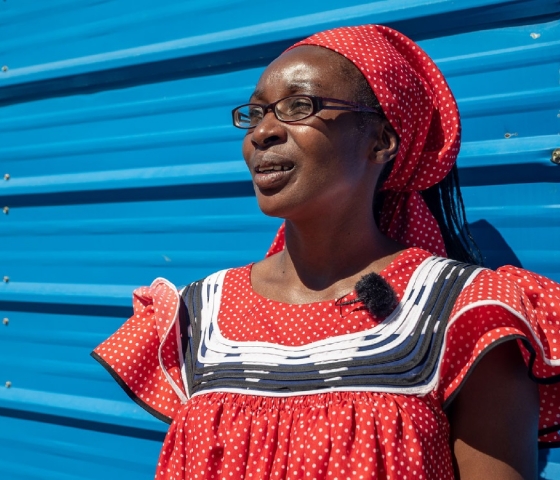Černí Češi
director Martin Müller, Czech Republic 2022, 71 min.
The Black Czechs are a group of 56 child war refugees from Angola who were accepted for upbringing and education by the Czechoslovak government in October 1985. This was an act of international aid to the SWAPO liberation movement fighting for Namibia's independence from South African apartheid rule. The group consisted mainly of the children of prominent military dignitaries from the SWAPO military council, as well as generals and officers of the People's Liberation Army PLAN, which waged a guerrilla war against the South African armed forces in southern Angola.
Namibian children between the ages of five and eight arrived in Czechoslovakia accompanied by educational workers sent by the SWAPO organization. The teaching staff consisted of six female educators and one male, who had the function of group leader, deputy Czech school director and children's legal representative. In September 1989, at the request of Sam Nujoma, head of SWAPO, another 64 children were admitted to Považská Bystrica.
While the Namibian children gradually formed personalities with a strong attachment to Czechness, who linked their future life with further study and life in Czechoslovakia, the new political situation in both countries at the turn of the 1990s radically changed the scene of their lives. The communist regime fell in Czechoslovakia and Namibia was preparing for its first free elections. The Namibian regime demanded the Namibian children back, but without clear guarantees as to what would happen to them. After a long hesitation by the Czechoslovak authorities and their intensive diplomatic negotiations with the Namibian government, the children were finally relocated to Namibia in a controlled manner in 1991, with incomplete primary education, without any psychological and linguistic preparation. This political decision had far-reaching implications for their future.
Even after more than 30 years of their lives spent in Namibia, Black Czechs feel a strong sense of belonging to the Czech Republic, which they consider their home. Most of them still speak the Czech language, or at least understand it, and maintain Czech customs, traditions and European lifestyle. Members of the group meet regularly, either spontaneously or in the form of annual official meetings organized by the Embassy of the Czech Republic in South Africa. Black Czechs like to follow political and cultural events in our country, and their lifelong dream is to look back at the country where they grew up. The group is currently seeking, among other things, to make their history in exile part of the national memory and to be compensated and socially rehabilitated as descendants of prominent war veterans and national heroes of Namibia's independence struggle.
Introduction by Martin Müller


